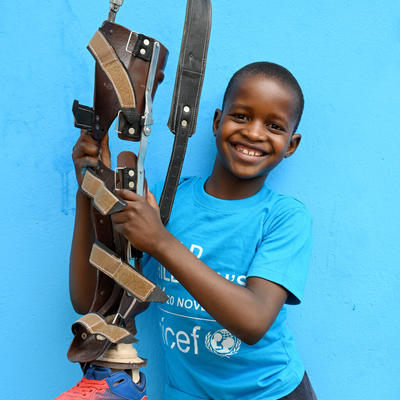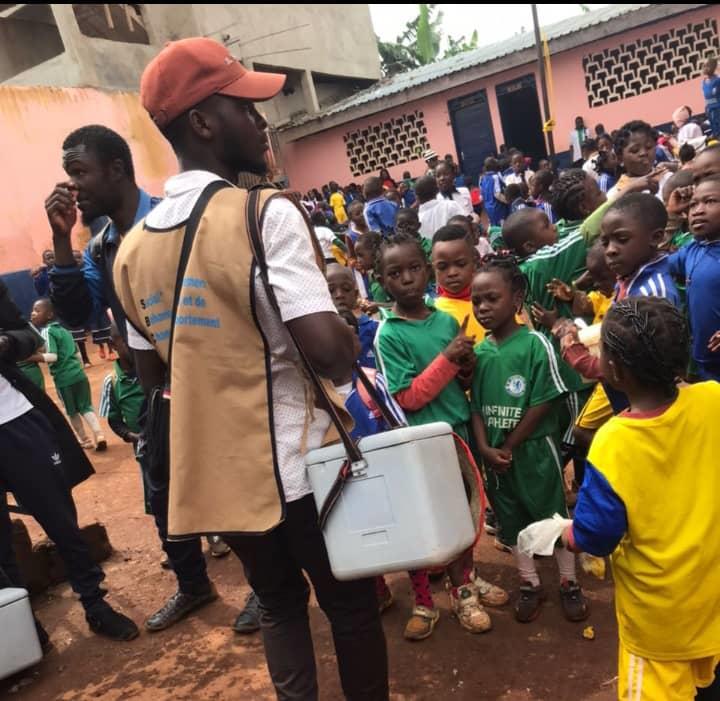
The "School Without Polio" initiative in Cameroon is uniting the health and education sectors to combat polio and address vaccine hesitancy among children aged 0 to 5. Led by the NGO Family Club and supported by UNICEF, over 650 stakeholders—including 350 mobilizing teachers—have been deployed across nurseries, primary schools, Quranic schools, and Sunday schools. Through advocacy sessions in Yaoundé, Douala, and Bafoussam, the initiative tackled root causes of vaccine hesitancy, such as delayed information and lack of communication between health services, schools, and parents. Embraced by educators and school officials, the program has transformed teachers into health ambassadors, leading to visible improvements in vaccination rates and establishing a sustainable framework for collaboration between the health and education sectors in Cameroon.
Health Meets Education: A Powerful Synergy
Imagine a place where every child thrives not just academically but also in health. In Cameroon, this vision is becoming a reality. Recognizing that health creates the foundation for better learning and that education sustains health, stakeholders are bridging the gap between these two vital sectors. The "School Without Polio" initiative is the embodiment of this synergy, bringing together educators and health professionals to create lasting change.
The Family Club and UNICEF: Champions of Change
At the heart of this movement is the NGO Family Club, nationally acclaimed for its innovative approach to social mobilization in support of vaccination. With the backing of UNICEF, the global advocate for children's rights, Family Club has deployed 350 dedicated teachers as mobilizers in institutions caring for children aged 0 to 5. These include bustling nurseries, vibrant primary schools, as well as Quranic and Sunday schools scattered across the nation. Their mission? To weave the thread of health into the fabric of education.
Breaking Down Barriers: Addressing Vaccine Hesitancy
Vaccine hesitancy has long been a stumbling block in Cameroon's public health efforts. To tackle this challenge head-on, Family Club, supported by the Expanded Program on Immunization of the Ministry of Health and the Sub-Directorate of School Health at the Ministry of Basic Education, organized dynamic advocacy sessions in Yaoundé, Douala, and Bafoussam. These weren't just meetings—they were lively forums where previously skeptical school officials voiced their concerns openly.
Through honest and heartfelt dialogues, they pinpointed the root causes of resistance: delays in receiving information about vaccination campaigns and the absence of a consistent communication framework between district health services, school authorities, and parents. By shedding light on these issues, they paved the way for solutions that would rebuild trust.
Embracing the "School Without Polio" Initiative
The response from teachers and school leaders was overwhelmingly positive. They didn't just accept the "School Without Polio" initiative—they embraced it with enthusiasm. Recognizing its potential to extend beyond temporary campaigns, they saw it as a foundation for ongoing collaboration that could protect students from vaccine-preventable diseases for years to come.
Photo: A vaccinator engages with children during a school-based vaccination drive, ensuring that health and education go hand in hand as part of Cameroon’s “School Without Polio” initiative.

Empowering Educators: New Ambassadors of Health
The impact was immediate. Volunteers gained access to schools that had previously been closed off to vaccination efforts. As awareness spread, so did confidence in the vaccination process. Vaccinators began making significant strides, capitalizing on the newfound openness since the launch of school-based vaccination.
Moreover, several preschool teachers received training on the quality and safety of vaccines and learned how to administer vaccine drops themselves. These educators transformed into health ambassadors within their schools, championing vaccination and inspiring others to follow suit.
Building a Sustainable Future Together
The "School Without Polio" concept, brought to life by Family Club and funded by UNICEF, is more than just an initiative—it's a movement that's visibly transforming Cameroonian schools. By establishing a durable framework that unites the Health and Education sectors, it's ensuring that efforts to combat vaccine hesitancy are not just reactive but proactive and sustainable.
A Vision Realized: Towards a Healthier Cameroon
This collaborative endeavor showcases the profound impact that unity can have on public health outcomes. The combined efforts of teachers, school officials, health professionals, and organizations like Family Club and UNICEF are not just combating polio—they're laying the groundwork for a healthier, more educated generation.
As the "School Without Polio" initiative continues to gain momentum, it stands as a testament to what can be achieved when communities come together with a shared purpose. The children of Cameroon are not only receiving an education but are also learning the importance of health, creating a ripple effect that will benefit the nation for generations to come.

